Over the last decade, the rewilding of Bulgaria’s Rhodope Mountains has transformed the landscape into a showcase for nature recovery. Scaling up efforts to support the comeback of cinereous vultures is the perfect way to celebrate this momentous milestone.
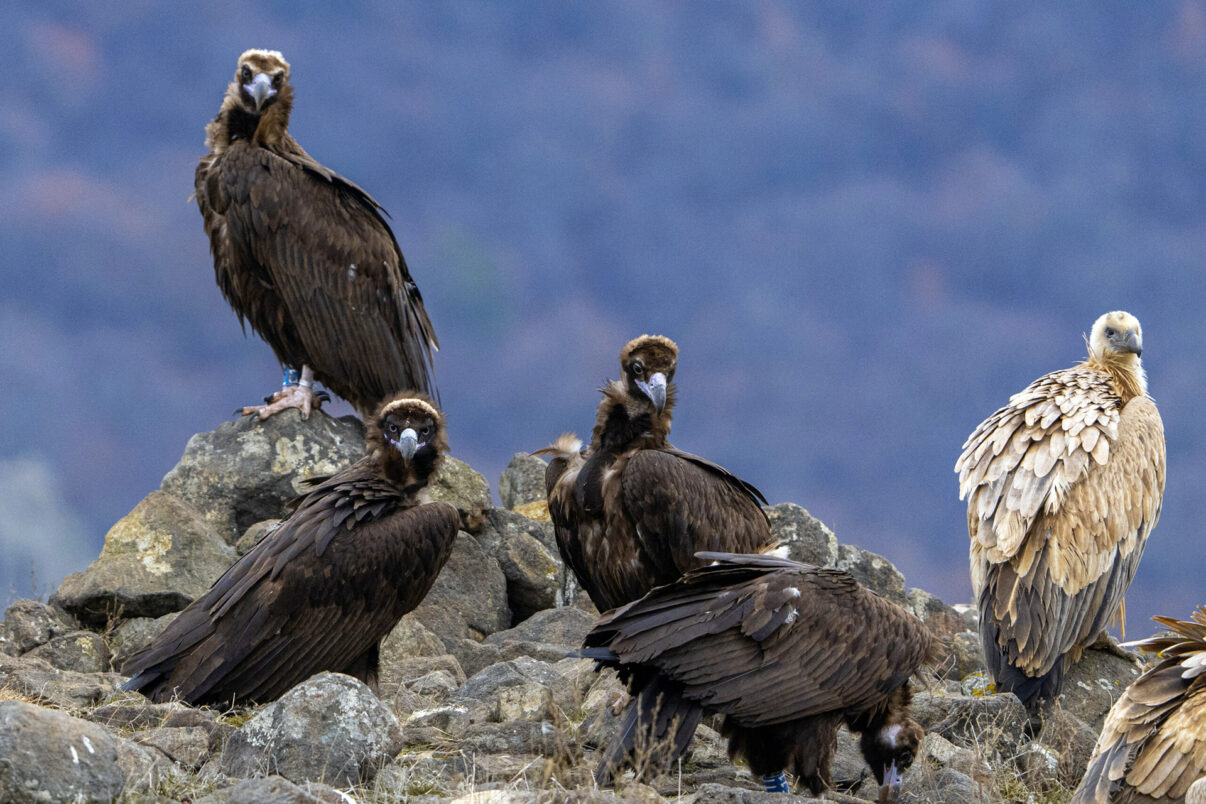
A fantastic decade for rewilding
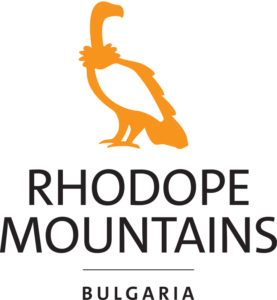 The Rewilding Rhodopes Foundation celebrated its tenth anniversary in November, marking a decade of progress that has positioned the organisation at the forefront of Bulgaria’s efforts to restore nature. Over this period, the Rhodope Mountains rewilding landscape has evolved into a pioneering nature recovery showcase.
The Rewilding Rhodopes Foundation celebrated its tenth anniversary in November, marking a decade of progress that has positioned the organisation at the forefront of Bulgaria’s efforts to restore nature. Over this period, the Rhodope Mountains rewilding landscape has evolved into a pioneering nature recovery showcase.
The local rewilding team’s collaborative efforts have seen the remarkable comeback of many species, such as European bison, Konik horses, griffon vultures, and red and fallow deer. Recently, the team have stepped up efforts to support the comeback of cinereous vultures, which means the future of this iconic, hugely impressive scavenger in the landscape now looks even brighter.
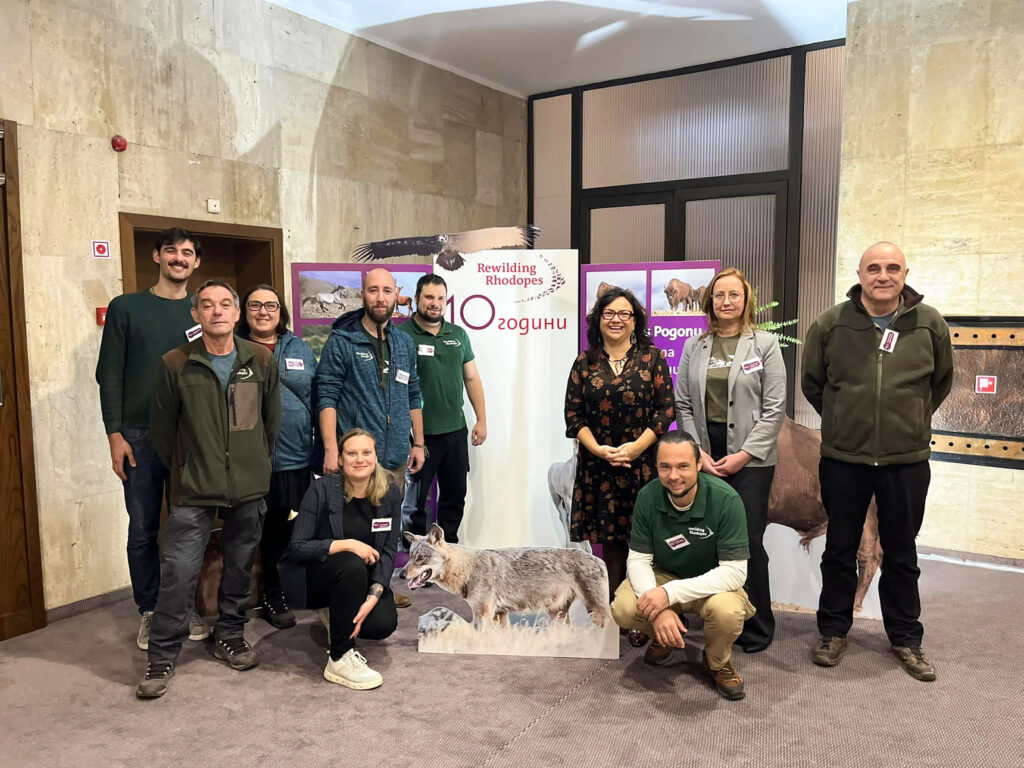
Towards a wilder Rhodopes
Vultures are Europe’s most impressive and well-known scavengers, delivering wide-ranging benefits to people and nature as iconic keystone species. The Rhodope Mountains, which straddle the border between Bulgaria and Greece, are the last stronghold of these majestic birds in the Balkans.
The Rewilding Rhodopes team, in collaboration with local partner the Bulgarian Society for the Protection of Birds (BSPB), have already made significant progress enhancing the local population of griffon vultures, which is now thriving. They have also taken steps to re-establish the cinereous vulture as a breeding species, overseeing releases in 2022 and 2023. Most of these birds are doing well and have settled in the area, with two nesting attempts this year.
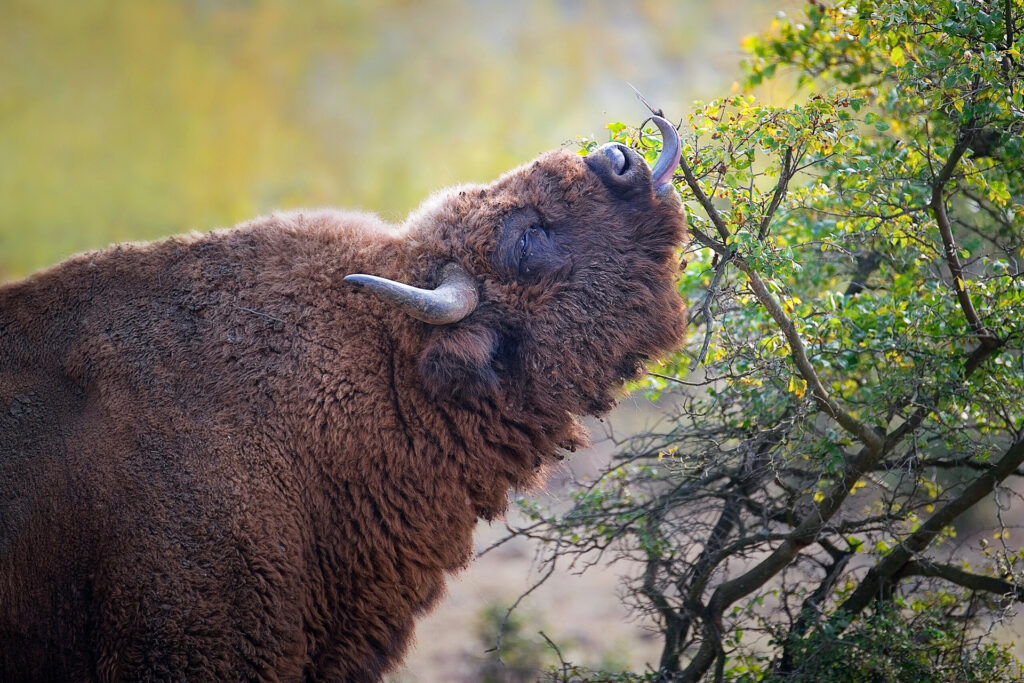
Taking vulture recovery to the next level
Kicking off in September, a new initiative entitled “LIFE Rhodope Vultures” will build on efforts to support cinereous vulture recovery in the Rhodope Mountains. Co-funded by the European Union’s LIFE programme and Rewilding Europe, it will continue the collaboration between the Rewilding Rhodopes Foundation and the Bulgarian Society for the Protection of Birds.
Moving forwards, around 40 more cinereous vultures will be sourced from Spain and released in the Rhodope Mountains rewilding landscape over the next five years, with the aim of establishing a permanent colony in the area. Efforts will also be made to protect and enhance a cinereous vulture colony across the Bulgarian border in Greece’s Dadia-Lefkimi-Soufli National Park.
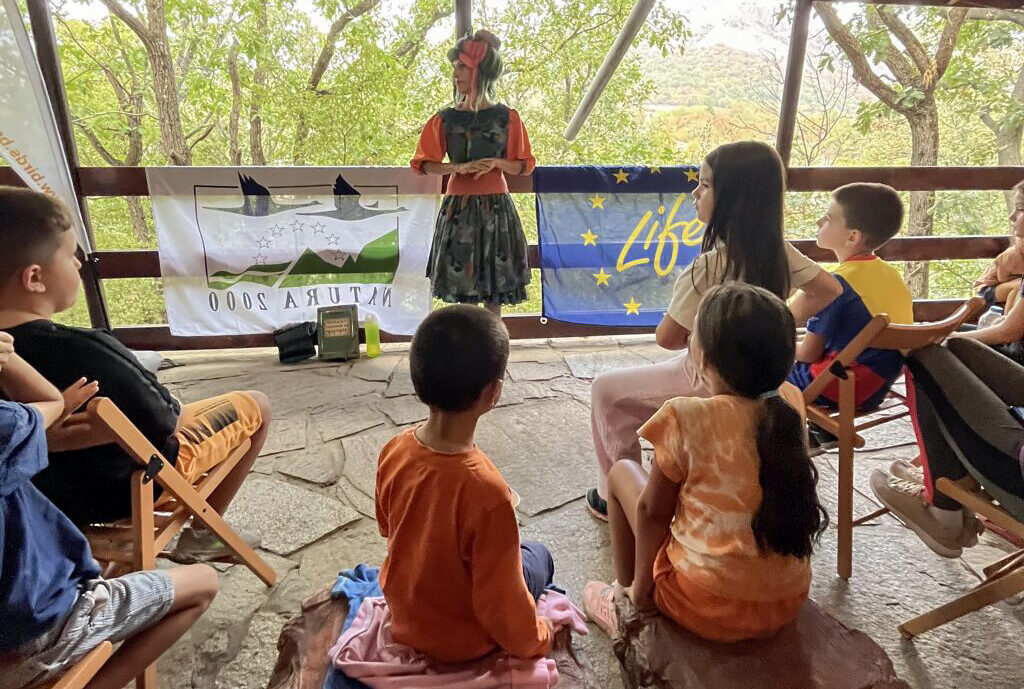
Wide-ranging support measures
Over the next five-year period, 25 vultures in Greece and 40 in Bulgaria will be tagged with GPS transmitters, helping the team to monitor their movements and adaption to the wild, and to address threats to the birds such as poisoned baits, poaching, and collisions with power lines and pylons.
Efforts will also focus on increasing the availability of natural food for vultures, which means they are less reliant on artificial feeding stations. The Rhodope Mountains rewilding team and the Bulgarian Society for the Protection of Birds have been working for many years to boost the availability of wild herbivore carcasses, which is helping to restore natural food webs and close the circle of life. The partners have overseen multiple releases of red and fallow deer at various sites across the landscape, with populations of both species now increasing and gradually expanding their range.
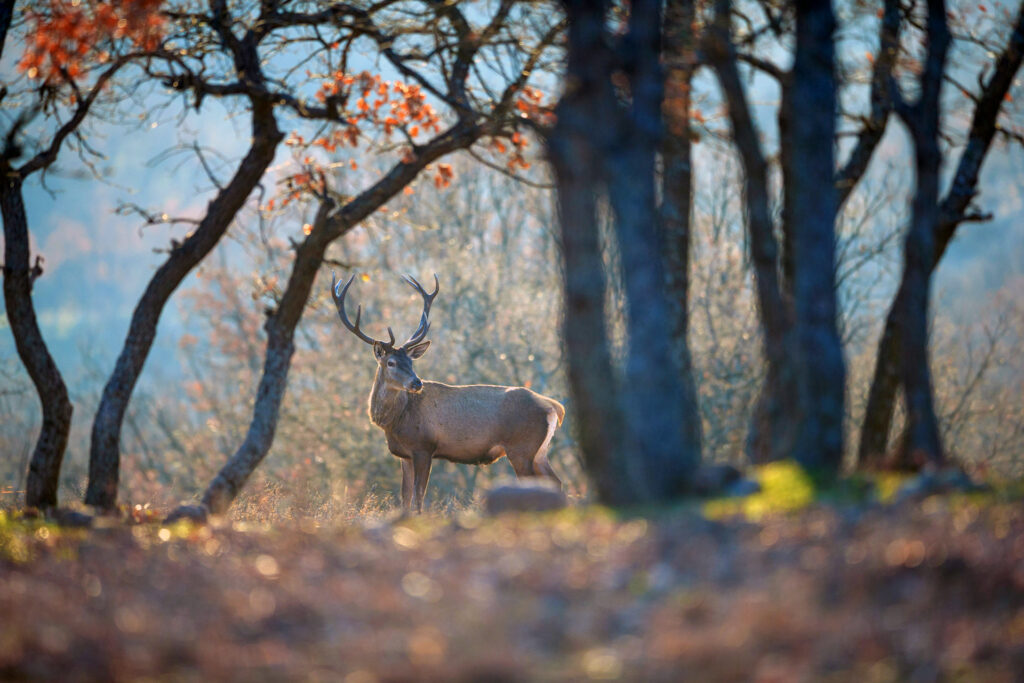
Boosting engagement and economic development
The recovering vulture populations in the Rhodope Mountains are proving a burgeoning attraction for wildlife enthusiasts, with the development of a nature-based economy enabling local communities to benefit financially from wilder nature. The new initiative will continue to foster cooperation among local businesses, conservation initiatives, and stakeholders, while educational and outreach programmes will raise awareness of the ecological benefits of cinereous vultures.
The LIFE Rhodope Vultures initiative was officially launched at a kick-off meeting in November, which saw over 40 representatives from twelve organisations in Bulgaria, Greece, Portugal, and Spain come together in the town of Ivaylovgrad. A vibrant, three-day vulture festival was also held in the town of Madzharovo in September to introduce the aims and actions of the initiative to the public.
The recovery of vulture populations represents a step towards realising the rewilding vision for the Rhodope Mountains, where abundant wildlife populations and natural processes such as scavenging help to maintain the health and functionality of the landscape and benefit local communities. With initiatives such as “LIFE Rhodope Vultures” now taking off, the future for nature and people in the Rhodopes looks even more promising.
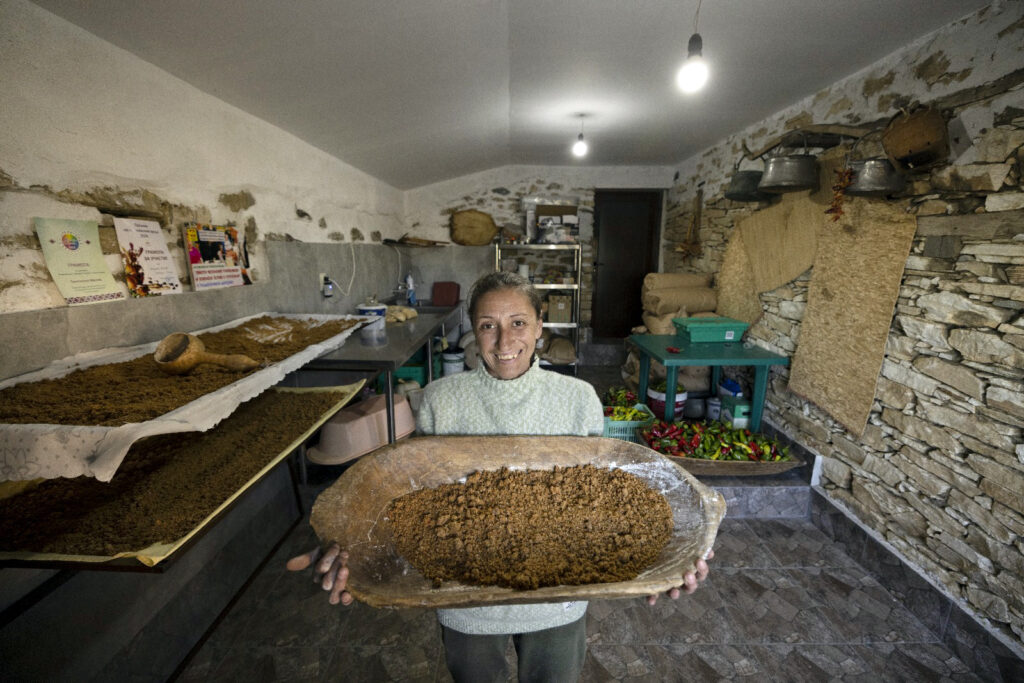
Invaluable support
Rewilding Europe’s work in our rewilding landscapes is supported by a wide range of highly valued partners. We would particularly like to acknowledge those providing core funding – notably the Ecological Restoration Fund, the Dutch Postcode Lottery, WWF-Netherlands, and Arcadia. Their longstanding support plays a critical role in enabling us to deliver and scale up rewilding impact.
